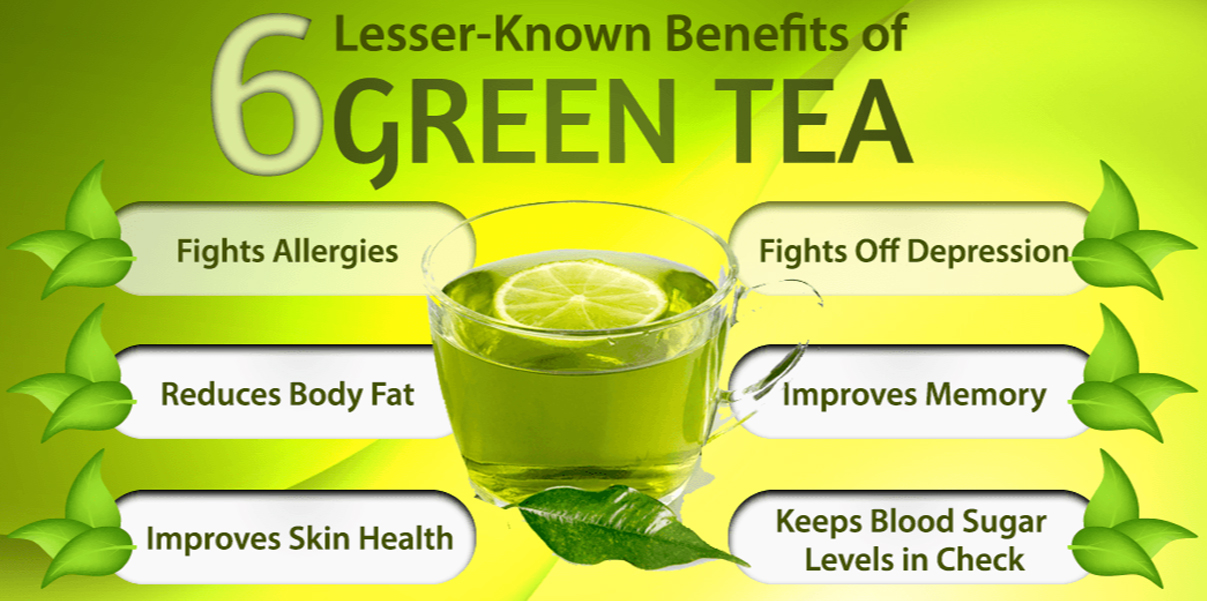Green tea extract is an active ingredient extracted from green tea leaves, mainly including tea polyphenols (catechins), caffeine, aromatic oils, moisture, minerals, pigments, carbohydrates, proteins, amino acids, Vitamins, etc.Suppliers of our Food Raw Materials. Tea polyphenols (green tea polyphenols, GTP) are the main components of green tea, accounting for about 30% of dry matter. GTP is extracted from tea leaves and their by-products (tea powder, tea flakes, raw tea or trimmed tea leaves). Since only food-grade ethyl acetate is used for extraction, the original structure of GTP is retained, and the product is a light yellow powder. The main components are composed of catechins, accounting for about 60%~80% of the total GTP, including epicatechin (L-EC) 4%~6% and gallocatechin (DL-EC-EC) 6% ~8%, 10%~15% epigallocatechin (L-EGC), 50%~60% epigallocatechin gallate (L-ECG), 8%~10% caffeine. Green tea extract-Efficacy of tea polyphenols:
1. Hypoglycemic effect
Multiple experimental data have confirmed that tea polyphenols are inhibitors of sucrase, so they can inhibit the conversion of sucrose into glucose, thereby lowering blood sugar. In addition, there are a few reports indicating that tea polyphenols can be used to fight caries, eliminate bad breath, lose weight, and beautify, etc. The anti-cancer, anti-aging, hypoglycemic, prevention and treatment of arteriosclerosis, liver protection and other effects of tea polyphenols may be related to its Antioxidant and scavenging harmful free radicals in the body. Currently, tea polyphenols have been approved as a food antioxidant. In Hungary, catechins are already on the market as hepatoprotective drugs. In China, tea polyphenols have also been put into production as cardiovascular therapeutic drugs.It are also Health Product Raw Materials. 2. antiviral effect
Japanese researchers have found that green tea and black tea extracts can inhibit influenza A and B viruses, while Swiss studies have also shown that catechin has an inhibitory effect on human respiratory synspora virus (RSV). In addition, tea polyphenols also have strong antagonistic and inhibitory effects on gastroenteritis virus, hepatitis A virus, and plant viruses. In recent years, many countries, such as the United Kingdom, the United States, Japan, and China, have conducted extensive research on the role of tea polyphenols in inhibiting human immunodeficiency virus-I reverse transcriptase (HIV-IRT). Research by Japanese scholars has confirmed that tea polyphenols are indeed a new type of strong inhibitor of HIV-IRT. Chinese scholars have proven that catechin derivatives have inhibitory effects on HIV-IRT and DNA polymerase, and pointed out that the inhibitory effect of EGCG is stronger than that of azidothymidine triphosphate (AIT). Analyzing the structure-activity relationship, ECG is 86 times more active than EC, while EGCG is 12 times more active than ECG. This opens up a new field for future AIDS treatment and research work. 3. Anti-cancer and anti-mutation effects
Research on tea`s ability to prevent, fight cancer, and resist mutations has been reported in many countries at home and abroad. A large number of studies have confirmed that tea can not only inhibit the mutations induced by a variety of chemical carcinogens, but also inhibit the mutagenic effects of some mixed carcinogens (fog concentrates, coal tar, smoked fish extract, X-rays). Therefore, tea has varying degrees of preventive and therapeutic effects on various cancers: esophageal cancer, gastric cancer, liver cancer, intestinal cancer, lung cancer, skin cancer, breast cancer, clonal cancer, etc.

4. Anti-oxidize effect
In normal life activities, harmful free radicals are continuously produced by metabolism in the human body. Free radicals are active in nature and have strong oxidizing ability. They can induce the oxidation of unsaturated fatty acids in the body and produce peroxidized lipids. Its production and accumulation will restrict and destroy the normal functions of biofilms, affect the normal metabolism of active substances, and promote many diseases such as hepatitis, cancer, aging, and cardiovascular diseases. Therefore, removing harmful free radicals from the body is extremely important to ensure people's health. Tea polyphenols extracted from tea leaves are a class of chemicals containing polyphenolic hydroxyl groups. They are easily oxidized into esters and provide proton H, so they have significant antioxidant properties. The antioxidant capacity of tea polyphenols is 18 times that of vitamin E and 3 to 10 times that of vitamin C. The strong antioxidant ability of tea polyphenols eliminates free radicals in the body, blocks the synthesis of N-nitroso compounds, inhibits the activity of lipoxygenase and lipid peroxidation, making it effective in preventing and fighting cancer. It has excellent disease prevention and treatment effects in many aspects such as anti-mutation, anti-aging, prevention and treatment of cardiovascular diseases, and treatment of hepatitis. 5. for cardiovascular disease
In recent years, scientists' research has proven that tea polyphenols have the effects of anticoagulation, promoting fibrinolysis, antiplatelet aggregation, lowering blood pressure, lowering blood lipids, preventing and treating atherosclerosis, and protecting myocardium. The use of tea polyphenols to treat atherosclerosis has also entered the clinical stage in our country. There are also reports that tea polyphenols can improve renal function, treat renal failure and chronic renal insufficiency, inhibit the thickening of the glomerular basement membrane, and treat primary and renal hypertension. Sharing from Ruixin Biotechnology. Some people fed tea polyphenols to experimental hyperlipidemia model rats. Six weeks later, in vitro thrombosis, red blood cell deformability, plasma fibrinogen content and other indicators showed the impact of tea polyphenols on animal hemorrheology. There is an improvement effect. 6. Anti-allergic and anti-inflammatory effects
Studies have shown that tea polyphenols have a significant inhibitory effect on hyaluronidase, among which the inhibitory activity of theaflavins and gallic acid reaches 99.1%. Catechin mainly inhibits rapid allergic reactions and has little effect on delayed allergic reactions. At present, research on the anti-inflammatory and anti-allergic effects of tea polyphenols is limited to animal experiments. Therefore, its pharmacological properties require further in-depth research and exploration. 7. Gastrointestinal protective function
Catechin can inhibit H-K-ATPase on the gastric mucosa, thereby fundamentally inhibiting the secretion of gastric acid and reducing the stimulation and damage of gastric mucosa by gastric acid. At the same time, catechin can also treat ulcers. In addition, catechins also have a certain relieving effect on gastrointestinal spasms. Tea polyphenols are also very effective in treating constipation, controlling intestinal flora, and improving and regulating the intestinal environment. As mentioned earlier, green tea extract is rich in antioxidants. EGCG, in particular, has been shown to support the body`s elimination of toxins and reduce oxidative stress. Adequate antioxidant levels in the body promote health at the cellular level. In some studies, green tea extract has been shown to support the body's normal fat oxidation processes during rest and exercise. Fat oxidation is the process by which the body breaks down fat into substances that can be used as energy within the body. Basically, this is the body's process of burning fat. Although more research is needed to fully understand the ways in which green tea extract supports fat oxidation, current research suggests that green tea may help support a healthy weight.





